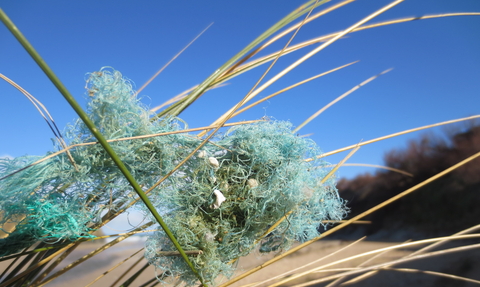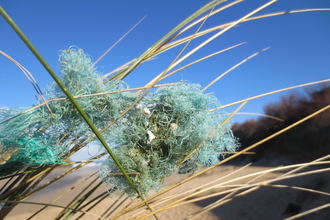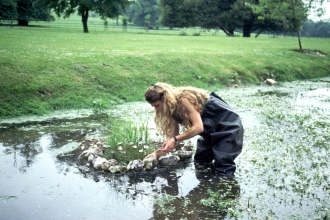
Ghost fishing gear © Trudi Lloyd Williams
Spiny Seahorses and Ripping Yarns
Take a walk on our coasts and you're likely to find the landscape dotted with plastic litter. Animals can become tangled in these items, or even starve after mistaking them for food. Larger pieces also break down into microplastics that accumulate in the food chain - the full impact of this on people and wildlife remains unknown.
We're collaborating with environmental artist Trudi Lloyd Williams to highlight this problem, as part of our project Secrets of the Solent. The collaboration, Spiny Seahorses and Ripping Yarns, continues Trudi's 12-year mission to raise awareness about the impact of marine plastics through art and community action.
Spiny and short-snouted seahorses call our local waters home, but like much of our marine life they're threatened by human activity. In the past, sailors expressed their respect for the sea in the thrilling stories, or ‘ripping yarns’, of their shanties. But today seahorses and many other species are at risk of disappearing entirely.
To tackle this, we've worked with Trudi and local communities to turn litter from our shores into an immersive sculpture that simulates the surface of a plastic-filled ocean. Visitors are invited to imagine what it would be like to be underwater in years to come when plastic pollution will have overwhelmed our oceans.
The sculpture forms the centrepiece of our marine litter exhibition which is on display at the Portsmouth Museum and Art Gallery.
The exhibition is open daily from 10am-5pm and is free to enter.
Trudi's tales
What does it take to make amazing environmental art? Trudi shares the thoughts and experiences that are shaping her creative process.







